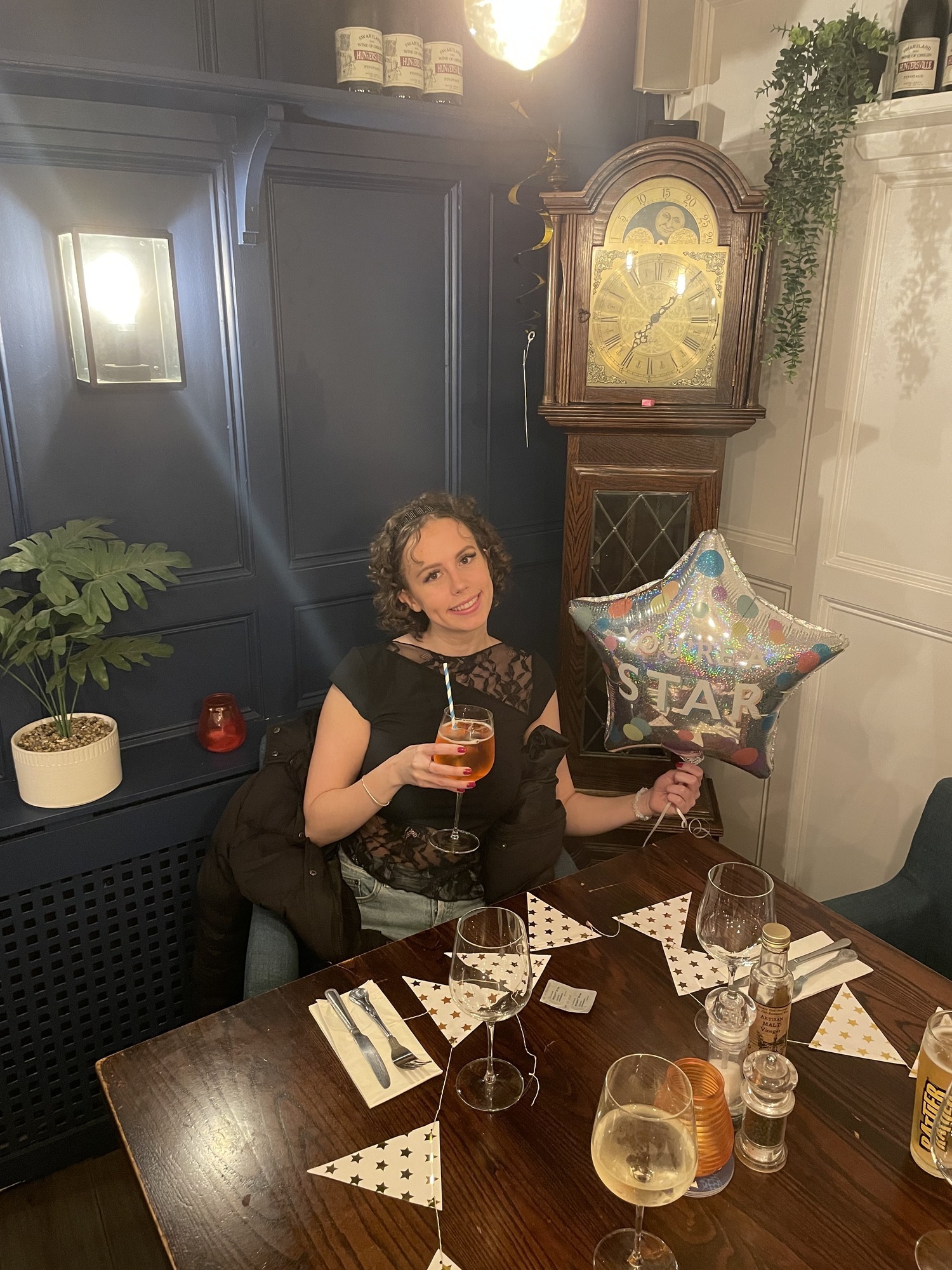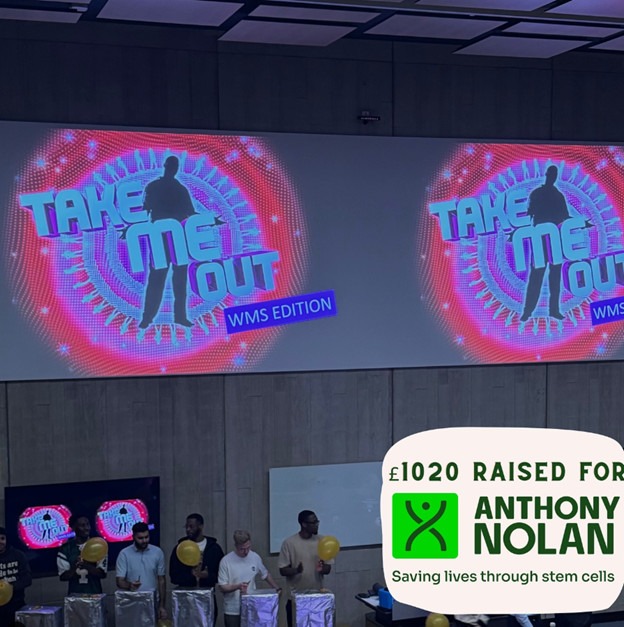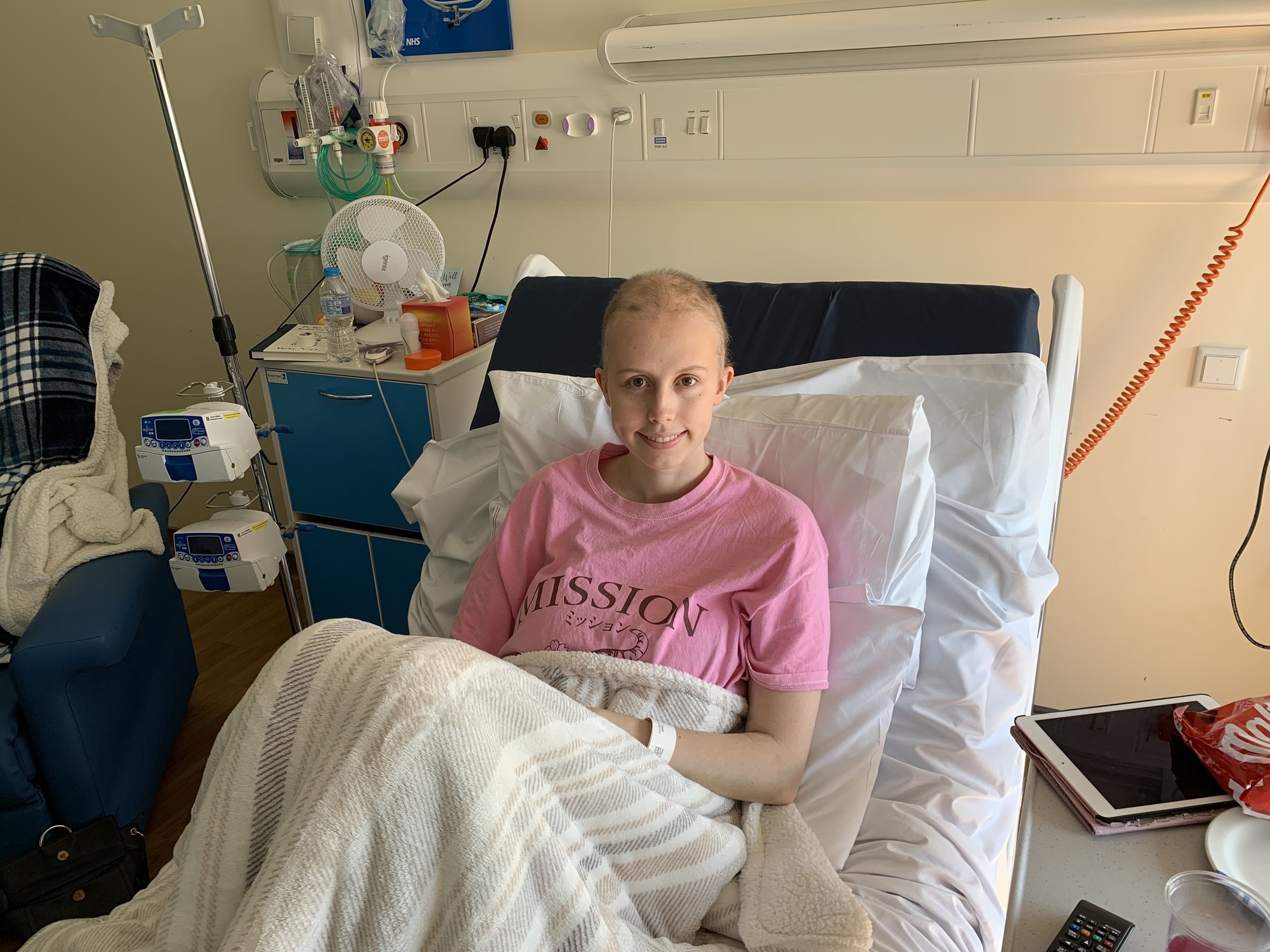‘Listen to your body’: Warwick cancer survivor urges students to get blood-tested
Danae Warne, a final-year student at Warwick, is encouraging other students to get blood-tested, and to register for blood and stem cell donation, following her recent remission from Acute Myeloid Leukaemia (AML).
Warne, following a history of anaemia from the age of 14, made the decision to contact her GP after experiencing more severe symptoms.
Her previous symptoms of tiredness, paleness and shortness of breath, often associated with iron deficiency, became more unusual, experiencing easy bruising, tinnitus and bone pain.
After a quick blood test and bone marrow biopsy at Warwick Hospital, she was diagnosed with AML at the age of 20, after doctors found ‘abnormal cells’ in her blood.
Just two years after her initial diagnosis, Warne is in remission following multiple rounds of chemotherapy and is looking forward to graduating in Applied Linguistics this summer
Her diagnosis came only 48 hours after her initial blood test and, unknown to Warne at the time, her decision to contact her GP was the difference between life and death.
What is particularly unusual about Warne’s diagnosis is that AML is usually found in older, rather than younger, people. Most common in those aged 75 and over, AML is a form of leukaemia that targets white blood cells, with the word ‘acute’ referring to its aggressive nature, and its quick speed in progression.
Just two years after her initial diagnosis, Warne is in remission following multiple rounds of chemotherapy and is looking forward to graduating in Applied Linguistics this summer.
Now, she is encouraging fellow Warwick students to trust their instincts and get blood-tested, even if they think their symptoms are minor.
You know your body better than anyone, and know when it doesn’t feel right
Danae Warne, final-year student
Warne told The Boar: “Until I was diagnosed, I don’t think I realised how much a blood test could show you about your health.”
She continued: “You know your body better than anyone, and know when it doesn’t feel right. The likelihood is that nothing serious will come up but if, like me, the diagnosis is more serious, catching it early can be so important.”
Warne gave further advice to those who are unsure about the prospect of a blood test. “I know a lot of people don’t like blood or needles,” she said, “but my best advice would be to listen to your body, because a five-minute blood test can quite literally be a lifesaver.”

Image: Danae Warne
Following her diagnosis, Warne has been an advocate for encouraging blood and stem cell donation. After the recent bank holidays, the NHS Give Blood campaign has seen a significant drop in blood donation, with stocks remaining critically low in city centre locations.
In response to this, Warne has encouraged anyone who is eligible to consider giving blood. She commented: “Looking back at my treatment, I know there were many moments I wouldn’t have survived if it weren’t for the people who had donated blood and platelets. If I could thank them I would, but I hope they know they have done such a brilliant thing.”
Donors offer people a second chance at life every single day, so I’d really encourage people to begin the process of checking eligibility and signing up
Danae Warne
Warne further encouraged anyone who is an ethnic minority, or has a rare blood type, to donate. She stated: “It’s really important that the people that sign up to be blood and stem cell donors are representative of the diversity of the population. These donors offer people a second chance at life every single day, so I’d really encourage people to begin the process of checking eligibility and signing up.”
As well as blood donating, there has also been a long-standing shortage in stem cell donors. Many people are unaware that stem cell donation is often as simple as a blood test, and can be vitally important for future medical testing and lifesaving.
Warwick Marrow, a student branch of the Anthony Nolan charity, has made a consistent effort to encourage blood and stem cell donation in the Warwick student body.
The Anthony Nolan Charity was founded in memory of Anthony Nolan who, following a diagnosis with Wiskott-Aldrich syndrome, a rare blood disorder, died at the age of seven. This led his mother, Shirley, to found the world’s first stem cell register to help children like her son, and to help save lives for people with blood cancers and blood disorders by encouraging stem cell transplantation.
When asked about their aims as a society, Warwick Marrow stated that they want to “recruit as many people to the stem cell register and to fundraise to raise the vital funds to both add these people to the register and complete vital research into the possible future uses of stem cells”.
90% of [stem cell] donations are just like having a blood test, and to go on to save someone’s life is something that we feel, as a society, is 100% worthwhile
Warwick Marrow
From their full day ‘Swabathon’ events to their annual fundraising ‘Take Me Out’, in collaboration with Warwick MedSoc, Warwick Marrow has emphasised the true importance of stem cell donation, and that even discussing it and raising money can be both fun and entertaining.
When asked why Warwick students should sign up to register, they remarked: “We would encourage everyone at the university to sign up to the register. 90% of donations are just like having a blood test, and to go on to save someone’s life is something that we feel, as a society, is 100% worthwhile.”

Warwick Marrow’s fundraisers include their annual ‘Take Me Out’ event, a collaboration with Warwick MedSoc. Image: @warwickmarrow / Instagram
Warne’s story is a testament to the vital need for blood and stem cell donations, as well as trusting your body and going to your GP if you are experiencing any unusual symptoms, no matter how serious.
For those interested in donating, you can register to become a blood or stem cell donor quickly and simply through the NHS Give Blood website, which also gives vital information about eligibility, and the process.

Comments